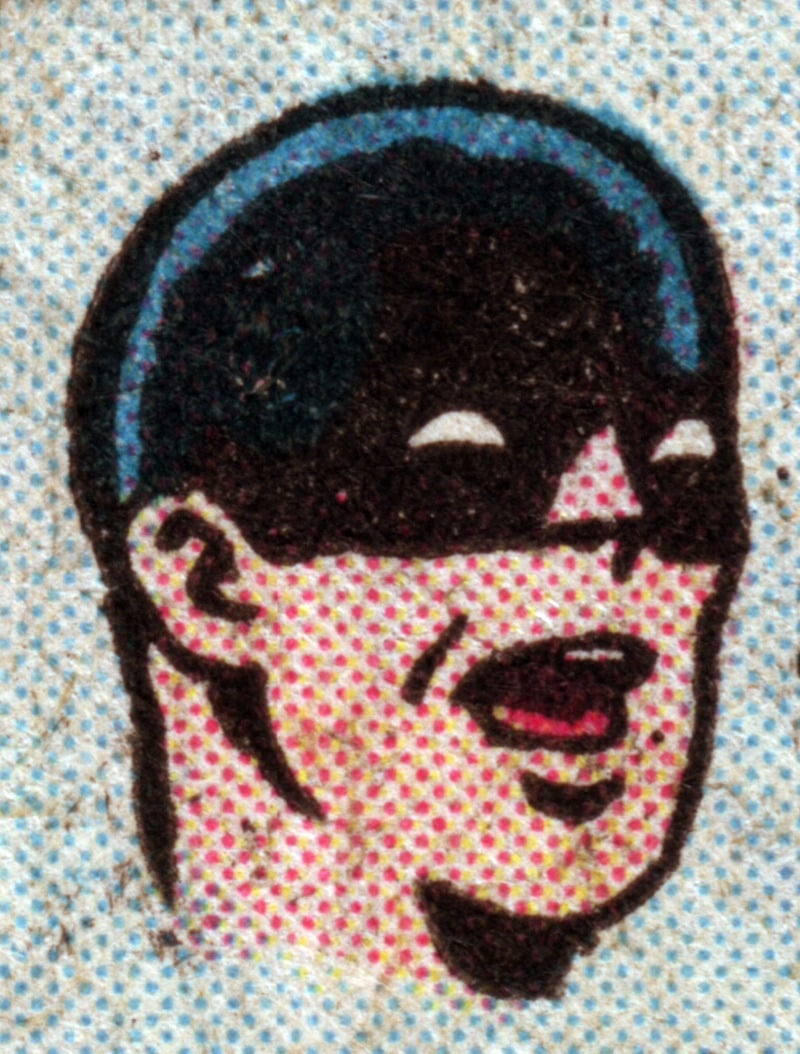It’s the patriarchal nature of Christianity, They can’t have the idea that women are teachers, leaders, that women have roles that are not subservient.
Likely comment from a godless commie. I keed, I keed, lol. Viva la revolucione, comrade!
the cultures that were around when abrahamic religions (christianity, judaism, islam, and all offshoots whether considered separate or not) were the patriarchal (men in charge) and misogynystic (prejudice against women). this was adopted into their religion, which in turn influenced the future of their culture and any cultures it took hold in. large islamic and christian states such as the ottoman empire, the (later) roman empire, and the catholic
empirei mean church spread this to pretty much all of europe and the middle east. colonialism spread this influence to the americas and part of africa. this large influence, along with trade, also affected religions in places that were not affected as much, such as asia and the parts of africa they didn’t colonise. this resulted in pretty much all of the non-asian world having a abrahamic religion as their biggest one, which caused the various african, pre-catholic european, and pre-colonial american religions to be either eradicated or forgotten. it also prevented the prominent asian religions (which were already well-established at that point, and did the same thing as the previous point to the areas they were in) from spreading much further.as it’s relevant to the topic, I feel like I should mention that I am a christian. I don’t think anything I said here was biased, but if i missed something important please let me know so i don’t accidentally misrepresent other religions.
Mat 22:30 Geneva1599 ‘For in the resurrection they neither marie wiues, nor wiues are bestowed in mariage, but are as the Angels of God in heauen’ [don’t you just love those spellings?]
Looks to me like christian God doesn’t have gender. But language tends to force it even when not intended.
not all christians will agree with my interpritation but some will.
Wicca/paganism/Earth-based traditions tend to be matriarchal and use names like Earth Mother, Ancient Mother, Gaia, etc to describe the most powerful deity.
If my understanding is correct
With Islam, the deity is meant to have no gender and the use of “he” has more to do with the nuances of Arabic language
With Christianity, there is more anthropomorphism and the deity is seen as a father figure in comparison to everything else
No, it is a good question with the usual simple ugly answers but also interesting nuanced ones too.
For example, one of the first civilizations Sumeria had a very prominent female deity named Ianna
She was especially beloved by the Assyrians, who elevated her to become the highest deity in their pantheon, ranking above their own national god Ashur. Inanna/Ishtar is alluded to in the Hebrew Bible[citation needed], and she greatly influenced the Ugaritic goddess Ashtart and later the Phoenician goddess Astarte, who in turn possibly influenced the development of the Greek goddess Aphrodite. Her cult continued to flourish until its gradual decline between the first and sixth centuries CE in the wake of Christianity.
Inanna appears in more myths than any other Sumerian deity.[9][10][11] She also has a uniquely high number of epithets and alternate names, comparable only to Nergal.[12]
The major Abrahamic religions have the same root and have had a heavy influence on most of the world. This is largely due to the Roman empire and it’s successors adopting and spreading Christianity in Europe and the Muslim caliphates spreading Islam through the Middle East and Africa.
Further east, Hinduism is the largest polytheistic religion and features a number of prominent goddesses. Though Hinduism has a lot of variety and the exact deities and their genders change depending on the adherents.
Buddhism, Taoism, and Confucianism don’t really focus on any deities.
Those are the most widespread religions, many others were eradicated or sidelined by European imperialism. Out of those left, many are animist religions, believing in spirits that can be a variety of genders.
Some classical polytheistic religions are still practiced today. They usually have some major goddesses in the mix.
If you go back to ancient Mesopotamia, Inanna/Ishtar is the head of her pantheon.
And Jainism has infinitely many gods, they just aren’t that important, from what I gather.
This is a question that’s great at getting theological arguments going. So to start with, we’re going to be ignoring religions and cultures not dominated by abrahamic religions because Hinduism split from mesopotamian religions in a very different way than Judaism and religions not associated with or influenced by the the mesopotamian civilization start are wildly different and I don’t know shit about them.
So, archeologically, evidence points to the Abrahamic God forming out of two or so male gods from mesopotamia and what began as a group devoting to that god eventually developed into a monotheistic religion. It looks like this may have been a storm god in competition with Baal, but as his religion developed he became androgynous but maintained he/him pronouns.
Theologically: hoo fucking boy that’s a fight right there. Neopagans and Mormons are in agreement that it’s because he’s a manifestation of the divine masculine and that there exists a divine feminine counterpart. Catholics (and to my knowledge jews though I’ve met some who agree with the neopagans and mormons) say that it’s tradition to address him in the masculine but he’s genderless. Some protestants will argue that he’s male and that men were created in his image and women less so. Other protestants agree with the Catholics. Others will say that the holy spirit is the divine feminine. And I’m sure many other interpretations exist.
Especially Christains and Muslims. Is there a prominent female god that as big as the other two
Technically, Christian, Jewish, and Muslim worship the same “God”. And have a big corpus of common texts and prophet (at the point the Koran talks a lot about Jesus) their religious differences are mostly about “interpretation” but they have way more similiarities than conservative of either religion like to admit
the trick is that the big block of Abrahamic monotheism is like the major monotheist religion. Then you have various polytheist pantheon having a mother earth figure but I don’t know them enough to know how major/female would be amateratsu or patchamama Neo-Pagan also tend to worship a Godess However, it’s a kind of made-up underground religion more than a major traditional one.
Because Abrahamic religions are kinda the Big Three and you don’t hear much about other religions. Hinduism has gods with female characteristics, a good majority of classical age religions feature female gods, lots of modern druids/neo-pagans/Wiccans revere an “Earthmother” or “Mother Nature” type deity. I’d even go so far as to say the Abrahamic religions are particularly weird for their lack of female representation.
One explanation I’ve heard is that it was cultural inheritance from the Proto-Indo-European Dyeus.
Because He presents Himself that way. That’s the way He wants to be seen.
I had a dream one time, where I was watching myself through God’s eyes. I was surprised that He cared about me, and thought He must be millions of years old. And the thought came to me, I wonder what He looks like? And in the same way I can imagine what I look like even without a mirror, He allowed me to ‘see / imagine’ what he looks like. He was fit, Maybe the tiniest bit bulky, but not so lean that His muscles would be popping out. Dark hair, full beard, trimmed neatly. And if I had to guess an age I’d say in his mid 40s or 50s. Basically in His prime. Forever.
The other interesting thing that came to me, that made sense in the dream. Is that He wasn’t old. He would never age. Because aging came from negative emotions like anger, bitterness, and so on. And He had none of that in Him. He had a zest for life, and He enjoyed existing.
I’ve had other dreams/ experiences as well.
show me which muslim said their god is represented as a male. i’m an ex muslim, allah (god) don’t have a gender, should’ve been pronounced “it” or “they/them” instead of “he/him”. it’s something that is not the same as its creatures based on the holy book.
A simple Google search shows that there is still debate, at least among the rank and file.
Which might just mean they don’t know their own religion. But since it’s all made up anyway, they’re not less correct.
Greek, Roman, Norse gods had a mix of male and female, although I think “head god” was still male.
In Hindu there is also a mix, although I’m not sure if they are all equal or one is in charge.
Shinto has animal gods (I’m again unsure if there is a particular “head god” or whether they are male or female, but at least it probably isn’t “a man”).
Hindu is complex and has some variability depending on the flavor. Some are left up to the individual to determine based on their perceptions.
The supreme being is genderless, the other aspects are more masculine or more feminine and some are androgenous or both. Feminine energy is the most powerful at creation and masculine is the most powerful at destruction. The gods are just a reflection of an aspect of the supreme genderless Brahman, where their characteristics favor a given gender and that is expressed in their visage. They also use names that convey a symbolism.
So no gender is the most powerful in Hindu, but different forms of gender expression have more power in an aspect of power.
Shinto’s “head god” was Izanagi, who was very much a man.
But there were plenty of very powerful feminine gods anyway. And Izanagi was the head in more a ‘fathered the others’ way than anything.
Shinto’s Izanagi wasn’t really the “head god” I thought? He was the creator deity, and fathered the rest but that’s true for Ouranos in Greek myth and I don’t think he’d be considered a primary deity at all.
From my understanding that was Amaterasu. Wikipedia agrees, for whatever that’s worth.
Often considered the chief deity (kami) of the Shinto pantheon, she is also portrayed in Japan’s earliest literary texts, the Kojiki
I don’t really know of any other solid examples of a female-led pantheon, though.
It’s a little more complicated than that. Izanami and Izanagi both created a lot of gods together. They descended from the heavens and using a spear in the waters of creation, Izanagi created land. The both of them aren’t the original gods though.
Izanami and Izanagi are the last of the seven generations of gods, the Kamiyonanayo. Before them came the Kotoamatsukami, all coming into existence in solitude in Takamanohara at the creation of the universe.
It’s a little more complicated than that.
I’ve been interested in mythologies for a long time and in my experience this phrase literally always applies.
But I didn’t actually know most of that, really interesting! Thank you.
deleted by creator







